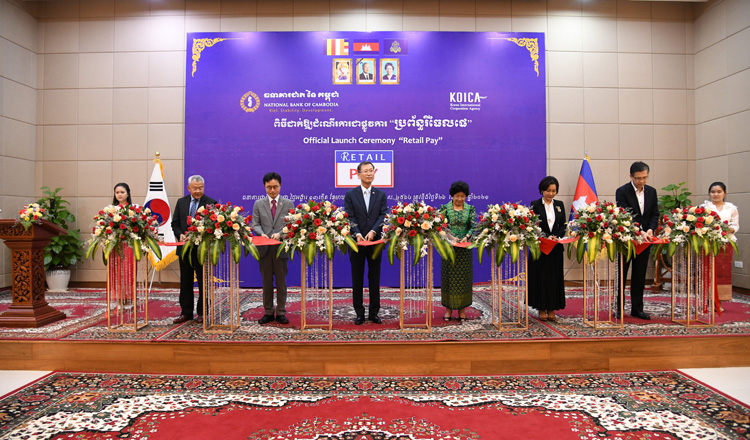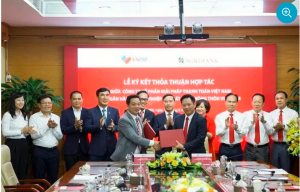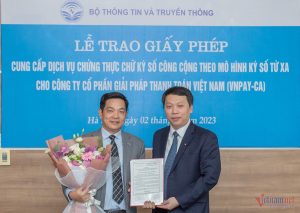
The new payment system was developed under the support of the Korea International Cooperation Agency (KOICA).
Neav Chanthana, deputy governor of the NBC, said the payment system plays an important role in promoting economic development by providing an efficient and safe financial infrastructure to facilitate fund transfers and payment activities. It is also conducive in accelerating financial inclusion by leveraging newly innovative financial technology in an affordable and widespread manner for the rural population where banks are not available.
NBC put a tremendous effort in developing and regulating the payment system for its safety, efficiency, competition and customers’ protection, as well as creating an innovation in the payment space. She also said the NBC had been working on its development as a priority in order to reduce cash usage and stimulate the use of electronic payment in the economy as well as to promote financial inclusion in line with the government’s financial sector development strategy.
According to KOICA’s statement, through Retail Pay, when a remitter sends money (riel or dollars) either by visiting a bank or using mobile banking, it is deposited to the receiver’s bank account in just a few seconds. This service allows people to pay rent, maintenance fees and utility bills virtually, which reduces the risk of having their cash lost or stolen.
KOICA said the Republic of Korea and Cambodia agreed to work together on enhancing a national retail payment system for Cambodia from 2015 to 2020 with grant aid of $8 million from KOICA for planting, identification/clarification, design, implementation, testing and deployment of three payment systems: a real-time transfer, a mobile payment system and a QR-code payment system. It also includes an electronic clearing system.
Chea Serey, assistant governor and director-general of the NBC, said the Retail Pay payment system enables customers to conduct real-time fund transfers from someone’s bank account to another person’s if both banks are members of the system. She added, “So far, we have 22 banking and finance institutions as members of the system. Customers can transact by retail fund transfer, QR code or by mobile. The system will be serviced using both currencies and it can also work with cross-currencies.” She noted that when customers conduct a transaction electronically, all information is recorded. Therefore, the bank can use the data to analyse cash flow on daily View Postand monthly income, a feature Serey noted particularly as it is one of the criteria used by banks in the decision to approve a loan.
Microfinance deposit-taking institution PRASAC’s Executive Vice-President and Chief Marketing Officer Say Sony said that if clients have a PRASAC mobile bank account, Retail Pay will give them the ability to transfer money to account holders at more than 20 member banks.
In Channy, president of the Association of Banks in Cambodia and president and group managing director of ACLEDA, shared that people currently using bank counters to conduct their transactions number around 18 percent of ACLEDA’s two million customers. The rest use mobile applications and automated centres. This year ACLEDA estimates that number will be betwen 10 to 12 percent.


 Khmer
Khmer

